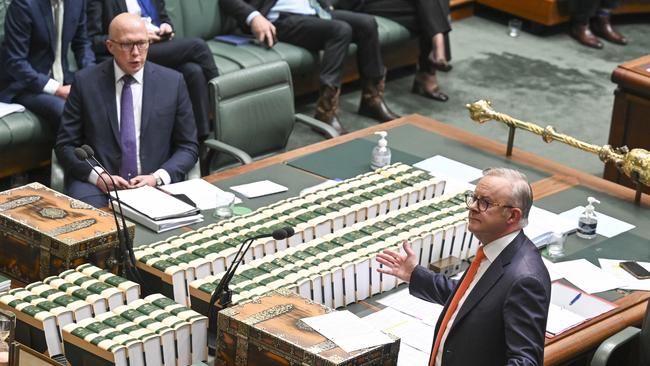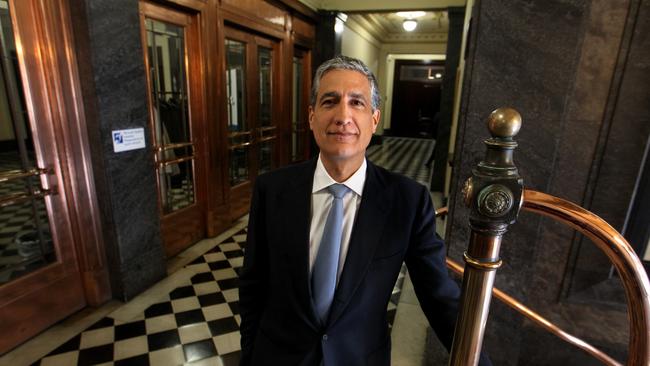
The mounting outflow of tax-deductible funds being sent to international companies’ overseas affiliates in low taxed countries is set to explode because the internationals concentrate their operations in the growth sectors of the economy.
The issue must be addressed in the next parliament, or the government of the day will need to start making long term plans to reduce our social services.

My previous commentary set out how the tax revenue exodus from Australia was not only impacting the public purse, but the very existence of tax paying Australian companies competing with internationals who pay little or no tax.
The Australian tax office has done its best under current rules to make the internationals pay tax at the full rate, but it’s not possible due to those rules. Unless we change the rules, Australia will be a very different country. Commentators like myself usually leave the solutions to others, but today I honour my promise to put forward two closely linked solutions and I urge the party that wins the next election to open up the market for other suggestions
My first is cash flow taxing. Paradoxically, this was put forward by the US Republican and former house speaker Paul Ryan before the first Trump presidency, starting in 2017. For a time it was endorsed by Donald Trump. But he then abandoned the idea, perhaps because if the system took off around the world, the US giants would have less money to send back home.
In 2018, four community leaders combined to adapt the Ryan plan for Australia – Ross Garnaut (then with the University of Melbourne), Craig Emerson, (former ALP trade minister), Reuben Finighan (London School of Economics) and Stephen Anthony (then with Industry Super Australia).
The Garnaut-Emerson-Finighan-Anthony cash flow model worked this way:
•The cash flow tax would have as its base net cash flows, being taxable revenue less non-financing cash outlays, encompassing operating costs plus capital expenditure. Note that capital expenditure becomes tax-deductible.
•As an offset, interest and other financing costs are non-deductible, except for finance organisations like banks.
•The accounting data for revenue and expenditure would be exactly the same as for corporate income tax, and the petroleum resource rent tax, so that established case law would still apply.
•No deduction would be allowed for imported services, unless the transaction is at arm’s length and relates to current costs of goods and services directly applied to producing the service for which a deduction is claimed.
This would deny a deduction for payments for imported intellectual property (the so-called “Leprechaun sandwich” because billions of Australian dollars end in low tax Ireland) except to the extent that the service purchased has itself required direct expenditure on goods and services for Australia.
•Foreign owners of intellectual property can earn rent through Australian sales, but payments for it are not deductible against Australian cash flow, except to the extent that they require specific expenditure on adaptation to Australian conditions.
•Franking credits remain, and there would be grandfathering provisions in the changeover.
This plan boosts both Australian investment in research and development, plus capital investment because there is an immediate deduction of all expenditures. In Australia there are enormous mining investments being proposed, although most will go overseas if current government policies in industrial relations, the environment, and Aboriginal affairs are continued.
Given current government policies, the discouraging mining investment, full deductibility would be essential to get most of those projects off the ground.
Nevertheless, the greatest revenue problem with the cash flow system is that in capital-intensive projects by profitable Australian companies, tax revenue in the early years would be negative.
Grandfathering might also have adverse taxation revenue implications. But longer term it will greatly enhance the taxation base and the prosperity of the nation
The second proposal aims to overcome the capital investment impact danger to revenue contained in the above proposal.
The amended proposal came out of a Melbourne Mining Club function addressed by then Orica chief executive Alberto Calderon.

The amended plan starts with the same treatment of intellectual property and other service areas, but capital expenditure would not be deducible while and interest would be deducted subject to a careful watch and on non market related schemes like that proposed by Chevron. But the courts have already stopped Chevron style interest rate games.
Under the second plan, while capital investment would not be deductible, there would be a generous investment allowance.
If Australian refused to allow “intellectual property rents” to be deductible except in special circumstances, it would trigger anger in the US.
But those rules could be applied to our companies operating overseas and enjoying the tax benefits of the “Leprechaun sandwich”.
Indeed, part of the Australian action plan should be to gain global approval of cash flow based tax, either in the pure form or amended.
We are dealing with a global problem and while we can go alone, there is much less likelihood of US retaliation if it’s part of a global movement.





All political parties who make expensive promises at the next election need to tell voters the horrible truth. Unless commodities boom again, big promises will not be sustainable if most international companies operating in Australia continue not paying proper company tax.